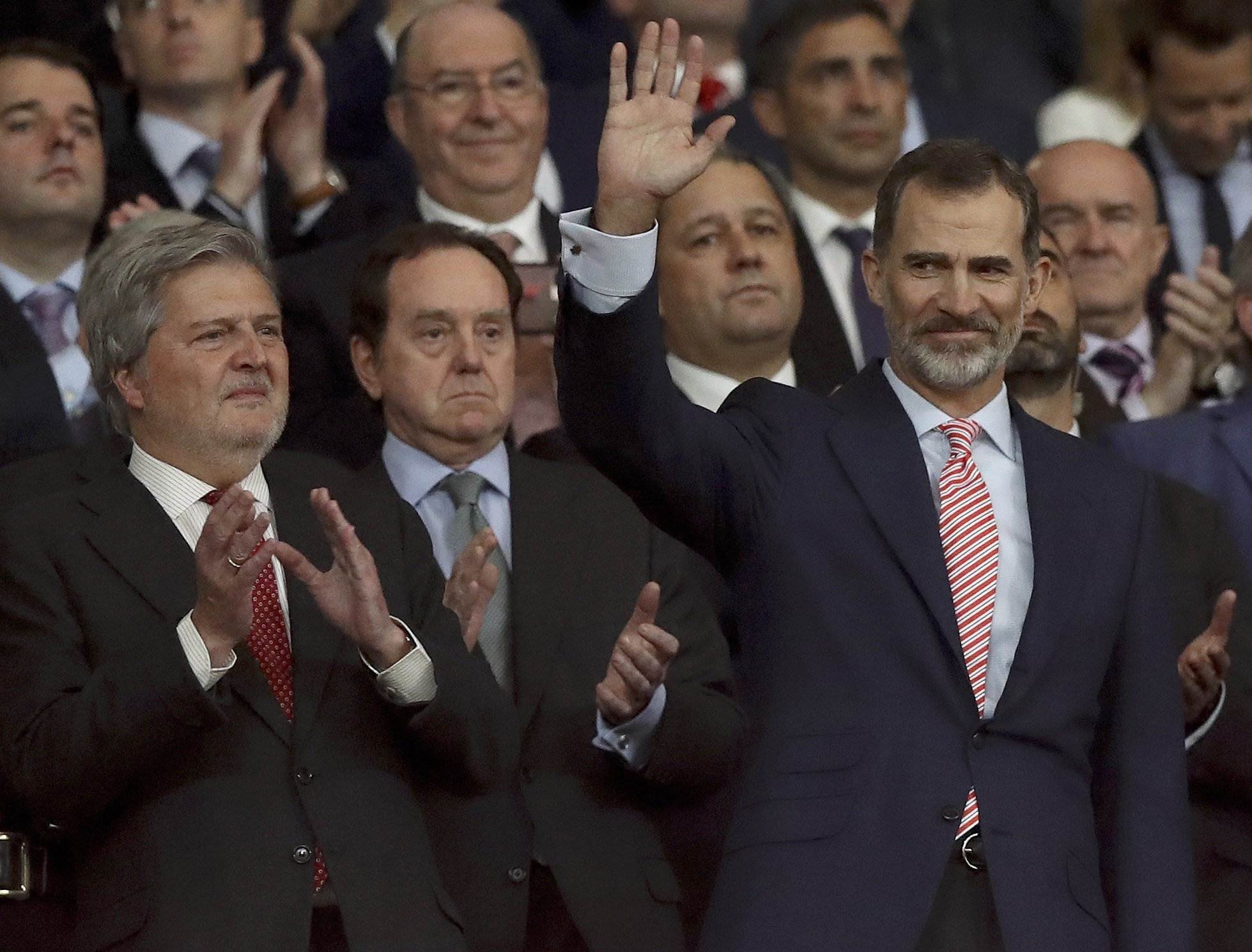It's clear that the Spanish monarchy is the weakest it has been since the death of Franco, but most surprising are the defensive attitudes publicly adopted by king Felipe VI as if the institution felt itself threatened and it was necessary to guarantee its support. And we already know that when someone feels insecure is when they commit the worst mistakes.
On Saturday, something especially significant happened which says a lot about the Zarzuela palace's strategy. Everyone knew that a large percentage of Barça's fans would boo the king and the Spanish anthem. And what did the king do? He wore a tie in Seville FC's colours. It's not an mere anecdote nor a coincidence. All the members of the royal family's moves and clothes are always planned to the millimetre. For the king to wear that tie was a premeditated political decision which aimed for nothing less than gaining complicity from Andalusian fans with a nod and a wink.
That means that Felipe VI confuses Barça's fans with pro-independence and republican Catalans as a whole, in other words, he gives their support up for lost. He believes that he doesn't have to make any efforts to win them over, and would even prefer to offend them if that would guarantee Andalusian support. It is, more or less, the same approach as the PP party. To win votes in the rest of Spain with anti-Catalan politics and rhetoric. That's what is denoted by a partisan or electoral behaviour by the king which would be unheard of in the consolidated monarchies of the north of Europe. Obviously the support of Andalusia is essential for the monarchy to survive. It's no coincidence that it's the most populated autonomous community in Spain and has a republican tradition which the Zarzuela must also see now as a serious threat.
In any case, the idea couldn't be strategically more mistaken. From the beginning, because it offends Barcelona's fans who are neither Catalan nor pro-independence, in other words, all those from around Spain, and there are lots of them. It also offends Betis' fans who don't like Seville at all; but, worst of all, the monarch's monumental mistake was that, when all was said and done, after a resounding 5-0, the king left the stadium defeated. The countdown starts when kings take sides, because sooner or later comes the day when they lose. It's a constant in the history of the Bourbon dynasty.
The truth is that, after the substitution which had to be made quickly and discretely to switch Juan Carlos I for Felipe VI following the corruption cases which were affecting the family business, everything has gotten worse. The weakness of the institution of the monarchy is now more patently clear than ever with the pathetic media campaigns -like the ridiculous Christmas video- and, above all, with the repressive manoeuvres against republican or anti-monarchy comments. The sentence of three and a half years in prison for the rapper Valtonyc is sufficiently well-known and has been sufficiently commented upon, but the confiscation and fining of satirical magazine El Jueves for a cartoon shouldn't be forgotten, nor should the 800€ fine (£700, $980) for a man who said on his Facebook page that Juan Carlos I was "corrupt and a bastard".
Despite the European Court of Human Rights having ruled that burning photographs of the monarch is an act of freedom of expression, the pro-monarchy parties and PSOE have declined to decriminalise insulting the king. Such protection, which even the president of the US doesn't enjoy, is only justified by fear. Certainly, the new monarch has seen scenes of protests his father never had; the new queen hasn't managed to win over the public's sympathies and republican flags are now present in any protest around Spain.
Keeping the monarch is currently what is preventing any kind of constitutional reform which would modernise the structures of the Spanish state from taking place. Any reform proposed with a minimum of ambition would open the debate over the form of the state and a referendum would be inexcusable. Former Spanish PM Adolfo Suárez already admitted that, during the transition to democracy after the dictatorship, a public vote on ratifying the king designated by Franco was avoided because surveys predicted a defeat. Now the Centre of Sociological Studies has opted to not ask about the monarchy, one supposes to avoid displeasing his majesty.

